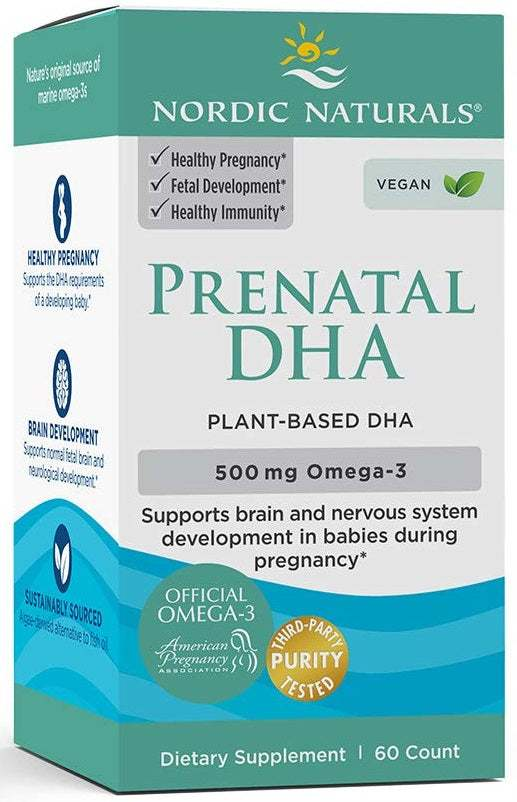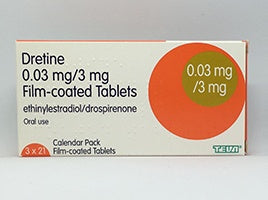How soon after unprotected sex can I test for pregnancy?
.png?v=1676652883855)

Related products
How Soon After Unprotected Sex Can I Test for Pregnancy?
Finding yourself asking "How soon can I take a pregnancy test?" after unprotected sex is incredibly common. Whether you're hoping for a positive result or anxious about an unplanned pregnancy, the waiting period can feel long and uncertain. Understanding how pregnancy tests work and the factors that influence their accuracy can help you navigate this time with more clarity and less stress. This guide will walk you through the science, timing, and next steps.

Understanding the Basics: How Pregnancy Tests Work
To understand when you can test, it's helpful to know what a pregnancy test is actually looking for and why timing is so important.
The Role of hCG (Human Chorionic Gonadotropin) in Pregnancy Detection
Pregnancy tests work by detecting the presence of a hormone called human chorionic gonadotropin, or hCG. This hormone is often referred to as the 'pregnancy hormone'. It's produced by the placenta shortly after a fertilised egg successfully implants in the wall of the uterus.
Once implantation occurs (typically 6-12 days after ovulation), hCG enters your bloodstream and urine. Levels of hCG rise rapidly in the early weeks of pregnancy, roughly doubling every 48 to 72 hours. Pregnancy tests are designed to detect this increasing level of hCG in your urine (or blood, in the case of laboratory tests). The higher the level of hCG, the easier it is for a test to detect it, which is why timing matters significantly.
Pregnancy Test Sensitivity Explained: Choosing the Right Test
Not all pregnancy tests are created equal. A key factor that differentiates tests is their sensitivity to hCG. Sensitivity is typically measured in milli-international units per millilitre (mIU/mL). This figure indicates the lowest concentration of hCG the test can reliably detect.
A test with a lower mIU/mL number is more sensitive, meaning it can detect lower levels of hCG. Since hCG levels are lower in the very early stages of pregnancy, a more sensitive test has the potential to detect pregnancy sooner than a less sensitive one.
Most standard home pregnancy tests can detect hCG levels of 25 mIU/mL or higher. However, some 'early detection' tests are designed to pick up levels as low as 10 mIU/mL. Choosing a more sensitive pregnancy test (one with a lower mIU/mL) can allow for early pregnancy test mIU/mL detection.
For those looking for early results, brands like Clearblue offer tests specifically designed for early detection. You can explore a range of pregnancy tests, including early detection options, in our Women's Health Tests collection.
How Early Can I Take a Pregnancy Test After Sex?
Getting the timing right is crucial for an accurate result. Pregnancy tests detect hormones released after implantation, which happens several days after conception.

The commonly quoted best time to conduct the pregnancy test is the around the time of the first missed period. It means if you have missed a period at the expected date, it could be the first sign of pregnancy. The typical duration is 2-3 weeks after unprotected sex. It also depends upon the quality of the test being used.
While some tests can detect the hCG earlier, the others may require you to wait more days. In short, the longer you wait, the better the chances of having a positive pregnancy test. Let me explain how the time of testing correlates to the test results.
Testing After a Missed Period for Highest Accuracy
For the most reliable result, the best time to take a home pregnancy test is on or after the first day of your missed period. For most women with a regular cycle (around 28 days), this is roughly two weeks after ovulation and around 2-3 weeks after unprotected sex. By this time, if you are pregnant, your hCG levels are typically high enough to be easily detected by most standard home pregnancy tests.
Testing after a missed period significantly reduces the chance of a false negative result due to insufficient hCG levels. This is widely considered the most accurate pregnancy test timing.
Can I Test Earlier? Understanding Early Pregnancy Detection
Some highly sensitive early pregnancy tests claim to detect pregnancy several days before your expected period, often up to 4 or 5 days, and some even up to 6 days before the missed period. However, it is fair to understand that a test run too soon can give a negative result even if you are pregnant. Repeat testing after a few days will provide a more accurate picture, especially if you don't get a period.
These early tests are more sensitive to lower levels of hCG. However, the early pregnancy test accuracy is lower the further away you are from your expected period date. While possible to get a positive, it's also likely to get a negative if hCG levels haven't risen sufficiently yet. If you test early and get a negative result but your period doesn't arrive, it's essential to retest on or after the day of your expected period.
Most home-based tests provide 99% efficacy, provided they are conducted at the right time when the levels of hCG have reached a certain level. If you're considering testing early, look for products marketed as 'early detection' tests from trusted brands like Clearblue Early Detection Pregnancy Test. Browse our selection of early pregnancy tests for more options.
Why Waiting Can Be More Reliable
Testing too early, especially less than two weeks after unprotected sex or several days before your expected period, is the most common reason for getting a false negative result. Your body needs time to produce detectable levels of hCG after implantation.
Waiting until the day of your expected period, or ideally a few days after if your cycle is irregular, significantly increases the likelihood of the test accurately reflecting whether or not you are pregnant. While the wait can be difficult, it often provides a more definitive answer.
What Are the Chances of Getting Pregnant After Unprotected Sex?
It's worth noting that unprotected sex does not guarantee pregnancy. The chances depend on several factors, most significantly the timing of intercourse within your menstrual cycle relative to ovulation (when an egg is released). The chances of conception are maximum around the time of ovulation, which typically occurs around the middle of a menstrual cycle. Your age also matters, as fertility naturally declines with age. While sperm can survive for up to 5 days, making several days leading up to ovulation fertile, conception is impossible without ovulation. Therefore, the likelihood of pregnancy from a single instance of unprotected sex varies considerably.
The actual process of fertilization can take as much as 24 hours to complete, and the process occurs in various stages. After fertilization, the egg begins to divide rapidly and travels down to reach the site of implantation (fallopian tubes) where it is implanted. Here, another thing comes into play. Almost half of the fertilized eggs can't get implanted successfully and are expelled from the body. So, the chances of getting pregnant even after successful fertilization are just 40-50%.
Factors That Can Affect Your Pregnancy Test Results
While home pregnancy tests are generally reliable when used correctly, several factors can sometimes influence the outcome.

Understanding False Negatives
A false negative result occurs when the test indicates you are not pregnant, but you actually are. The most frequent reason for a false negative is testing too early, when hCG levels are not yet high enough to be detected by the test.
Other reasons for a false negative can include:
- Diluted urine: Drinking large amounts of fluid before taking the test can dilute your urine, lowering the concentration of hCG and making it harder to detect, especially in early pregnancy.
- Incorrect test usage: Not following the test instructions precisely (e.g., not using enough urine, not waiting the specified time) can lead to an inaccurate result.
- Expired or faulty test: Always check the expiry date on the packaging. An expired test may not function correctly.
- Rare medical conditions: Very rarely, certain medical conditions can affect hCG levels or test results.
If you get a negative result but your period doesn't start, and you still suspect you might be pregnant, wait a few days and retest, or consult your doctor.
The Rarity of False Positives
A false positive result occurs when the test indicates you are pregnant, but you are not. False positives are much rarer than false negatives with modern home pregnancy tests.
Potential causes of a false positive can include:
- Certain medications: Some fertility medications, particularly those containing hCG, can cause a false positive result.
- Recent pregnancy loss or termination: hCG can remain in your system for some time after a miscarriage or abortion.
- Certain medical conditions: Very rarely, certain medical conditions (like some types of cancer) can produce hCG.
- Evaporation lines: Sometimes, a faint line might appear in the test window after the recommended time limit has passed. This is usually an evaporation line caused by the urine drying, not a positive result. It's crucial to read the test result within the timeframe specified in the instructions.
How to Get the Most Accurate Result
To maximise the accuracy of your home pregnancy test:
- Read the instructions carefully: Every test is slightly different. Make sure you understand how to use it, how long to wait for the result, and how to interpret it.
- Use first morning urine: Especially if testing early, first morning urine is the most concentrated, containing the highest potential level of hCG. If testing later in the day, try to hold your urine for at least four hours before testing.
- Check the expiry date: Ensure the test is not expired.
- Don't drink excessive fluids beforehand: Avoid overhydrating before the test, as this can dilute your urine and potentially impact the result, particularly in very early pregnancy.
Following these accurate pregnancy test tips provides the best way to take pregnancy test at home. Sometimes, some technical issues can compromise the test results. One such issue is the appearance of evaporation lines formed due to the evaporation of urine from the test strips. Read more: Everything you need to know about a pregnancy test.
What are the standard tests available?
The most common test conducted at home is the urine test which provides a reasonable accuracy of 99% or more if appropriately executed. The blood tests are conducted at the labs and can give even better results by detecting the minute level of hCG. These tests can provide accurate results as low as 6-8 days after ovulation. Despite more accuracy, a lab technologist or doctor conducts these tests in the labs.
At Welzo, we have various pregnancy testing products available for you. Our Pregnancy Blood Test is a comprehensive blood test that detects the presence of hCG in the blood of pregnant women. The results are shipped within 2 days. Click here to order your test kit.
However, if you are not comfortable with blood tests, we have a home-based test (Instant Pregnancy Test) that detects hCG in the urine. It provides results within 3 minutes and is one of the most sensitive test products in the market. Click here to order your test kit.
The Clearblue Early Detection Pregnancy Test is another susceptible product that can provide up to 99% accurate results as early as 6 days before the missed period. Click here for more information and order your kit.
Recognising Early Signs of Pregnancy (Beyond a Test)
While a pregnancy test is the most definitive way to confirm pregnancy, your body might start showing some subtle signs even before you can get a positive test result. These signs of early pregnancy before missed period can vary greatly from person to person and can also be indicative of other conditions or your normal menstrual cycle approaching. It's important to remember that these symptoms are not a substitute for a test.
Common very early pregnancy symptoms might include:
- Fatigue
- Nausea or morning sickness (can occur at any time of day)
- Tender, swollen breasts
- Implantation bleeding (light spotting around the time implantation might occur)
- Increased frequency of urination
- Sensitivity to smells
- Food cravings or aversions
- Mood changes
- Bloating
It's important not to rely solely on these very early pregnancy symptoms 1 week or two after potential conception, as they can be misleading and caused by factors other than pregnancy. A pregnancy test is necessary for confirmation.
Supporting your overall wellbeing during this time is important. Explore our Well woman range for supplements that can support women's health.
What to Do After Unprotected Sex if You're Not Trying to Conceive
If you've had unprotected sex and were not trying to get pregnant, there are immediate steps you can consider to prevent pregnancy or address potential concerns.
Considering Emergency Contraception (The Morning After Pill)
Emergency contraception is a method to prevent pregnancy after unprotected sex or contraceptive failure. It works by delaying or preventing ovulation.

There are different types available, and their effectiveness windows vary. It's crucial to remember that the sooner you take emergency contraception - after unprotected sex, the more effective it is. Understanding the emergency contraception effectiveness window and morning after pill timeline is key.
If you've had unprotected sex and want to prevent pregnancy, it's important to act quickly. Learn more about and access the Morning After Pill through our confidential service.
Understanding Your Contraception Options for the Future
Following a situation involving unprotected sex, it's a good time to review your regular contraception methods to prevent future unplanned pregnancies. There are many different options available, including pills, patches, injections, implants, and IUD's, each with its own benefits and considerations.
Discussing your lifestyle, health, and preferences with a healthcare professional can help you choose the most suitable long-term contraception options.
For information on various methods of regular contraception, please visit our Contraception page.
Next Steps Based on Your Pregnancy Test Result
Once you have a pregnancy test result, what should you do next?
If Your Test is Negative
If your test is negative but your period is still missed, it's possible you tested too early or your cycle is irregular. Wait a few days (e.g., 3-5 days) and take another test, ideally using first morning urine. If your period still doesn't arrive after a second negative test, or if you have concerns about your cycle or potential pregnancy, it's advisable to consult your GP to investigate other potential reasons for a missed period.
If you are actively trying to conceive and received a negative result, don't be discouraged. It can take time, and factors like cycle timing are crucial. You can explore our Conceive collection for products and resources, as well as take the Ovulation Progesterone Blood Test to support your journey.
Remember that unprotected sex also carries risks beyond pregnancy, including sexually transmitted infections (STIs). It's also a good time to consider your broader sexual wellbeing. If you have any concerns following unprotected sex, explore our Sexual Health Tests.
If Your Test is Positive
If your pregnancy test is positive, this is a strong indication of pregnancy. The next crucial step is to confirm the pregnancy with a healthcare provider, such as your GP or a local midwifery service. They can confirm the pregnancy through other methods like blood tests or ultrasound and start planning your antenatal care, which is essential for a healthy pregnancy journey.

It is recommended to visit the doctor's office after a positive test relatively soon to begin this process and receive guidance on antenatal care, lifestyle adjustments, and any necessary health checks.
A positive result is the first step. Your GP can confirm the pregnancy and guide you on antenatal care. Ensuring you have the right support and information is key, and our Women's Health Tests collection includes a variety of tests that can be useful throughout different life stages.
Unplanned Pregnancy: Support and Options
Receiving a positive pregnancy test result, especially if it was unplanned, can bring a mix of emotions. It's important to know that you are not alone and there are confidential support services available to help you understand your options.

Healthcare professionals, as well as recognised organisations like the NHS, Brook, and the British Pregnancy Advisory Service (BPAS), can provide impartial advice and support to help you explore all your options, including continuing the pregnancy, adoption, or abortion. Seeking confidential advice allows you to make an informed decision that is right for you.
Maintaining Your Sexual Health
Beyond concerns about pregnancy, any instance of unprotected sex is a reminder of the importance of maintaining good sexual health. This includes practicing safe sex using reliable contraception to prevent STIs as well as pregnancy, and considering regular sexual health check-ups, particularly if you are sexually active with new partners or have any symptoms or concerns following unprotected sex.

Taking care of your sexual health is vital. Welzo offers a range of Sexual Health Tests that you can take discreetly at home, as well as further information within our Sexual Health section.
Navigating the time after unprotected sex can be stressful, but understanding when and how to test for pregnancy, along with knowing your options for preventing pregnancy and accessing support, can provide peace of mind. Always follow test instructions carefully and consult a healthcare professional if you have any concerns about your results or sexual health.
Browse our range of home health tests, including pregnancy and sexual health tests, to support your wellbeing.




































 Rated Excellent by 26,523+ Reviews
Rated Excellent by 26,523+ Reviews